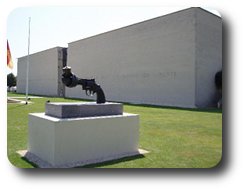Wednesday 21 October, 6.30pm until 8.00pm, Tate Britain, London
 Venue: Tate Britain auditorium, Millbank, London, SW1P 4RG
Venue: Tate Britain auditorium, Millbank, London, SW1P 4RG
Tickets: £10/£8 from Tate Britain on 020 7887 8888 or visit or buy online.
‘Cultural diplomacy’ is in vogue. The idea is that museums, galleries, libraries, art, theatre and music can play a critical role in international relations. The think tank Demos recommends these institutions address terrorism and conflict in the Middle East, and work to enhance relations with diasporas. Neil MacGregor, director of the British Museum, argues that the museum, its staff and collections can play a role in state-building and promoting peace and stability internationally, as well as helping those who visit in Bloomsbury to understand and appreciate other cultures. It is argued that in the context of a world that is experiencing a dramatic resurgence in nationalism and sectarian violence, encyclopaedic museums can play a positive role in encouraging understanding and tolerance between cultures.
But can culture really ease international conflict and foster tolerance? Or does looking to old objects to find messages of tolerance for today meaning obscuring the contemporary reasons behind conflicts? Does assigning cultural institutions such a role risk undermining their more traditional goals, or even compromise their scholarly objectivity? What kind of relationships should Western cultural institutions have with their counterparts abroad, and to what purpose? What role, if any, can and should museums play on the international stage?
The evening will be introduced by Dr Victoria Walsh, Head of Public Programmes at Tate Britain.
 | Dr Stephen Deuchar director, Tate Britain; chair, Turner Prize 2009 |
 | Dr Tiffany Jenkins writer and broadcaster; author, Keeping Their Marbles: how treasures of the past ended up in museums and why they should stay there |
 | Jonathan Jones art critic, Guardian |
 | Andrea Rose director, Visual Arts and Strategic Programmes, British Council; governor, University of the Arts, London; author, Gagarin in Britain |
 | Dr Tim Stanley leader writer and columnist, Daily Telegraph; research and teaching fellow, Rothermere American Institute at Oxford University |
| Chair: | |

|
Claire Fox
director, Academy of Ideas; panellist, BBC Radio 4's Moral Maze; author, I Find That Offensive |
One rather unexpected consequence of 9/11 and its political aftermath in Afghanistan and Iraq has been a steadily developing appreciation in the west of the art and culture of the Middle East.
Stephen Deuchar, Guardian, 10 October 2009But does traditional cultural diplomacy work? Do we need state-supported tours by American performing arts groups when without federal funding so many of our performers and performing arts groups are appearing all over the world, when American architects are designing high profile buildings internationally and when American artists are featured in the great museums?
Michael Kaiser, Huffington Post, 21 September 2009The taxpayer has been forced to underwrite the half a billion pounds insurance cost of a
Melissa Kite, Telegraph, 25 April 2009When western diplomats seek concessions from Iran, they typically dish out tough rhetoric and threaten sanctions. Neil MacGregor, the cherub-faced director of the British Museum, uses a more refined arsenal: cultural relics and priceless artifacts.
William Lee Adams, Time, 19 February 2009America should aim to export more serious forms of entertainment as well as 'Dark Knight' and 'Baywatch.'
Martha Bayles, Newsweek, 31 December 2008The V&A exhibition takes Syrians seriously in their own capital, unlike the hectoring speeches of the foreign secretary.
Simon Jenkins, Guardian Comment is Free, 29 November 2008When they tour, arts companies create a buzz of economic and political activity
David Jays, Sunday Times, 13 July 2008Speaking at the launch of a DEMOS report on cultural diplomacy last month, British Museum director Neil MacGregor called for culture to play a bigger international role in building and sustaining relations between countries…
Museums Association, 14 March 2007Do you enjoy multiculturalist drivel? No? Tough luck.
Damian Thompson, Telegraph, 3 March 2007Easily flattered, many arts organisations are falling over themselves to act as diplomats
Tiffany Jenkins, Independent, 28 February 2007As identity politics exert an increasing influence on domestic and international exchanges, culture is therefore a critical forum for negotiation and a medium of exchange in finding shared solutions.
John Holden, Rachel Briggs, Samuel Jones, Kirsten Bound, Demos, February 2007Each section of the report is richly illustrated with practical examples of the National Museums' contribution to agendas of fundamental global importance: from the dialogue between cultures to the preservation of the world's natural assets. The work reaches well beyond the fields of operation traditionally associated with museums.
National Museums Directors' Conference, 6 June 2002